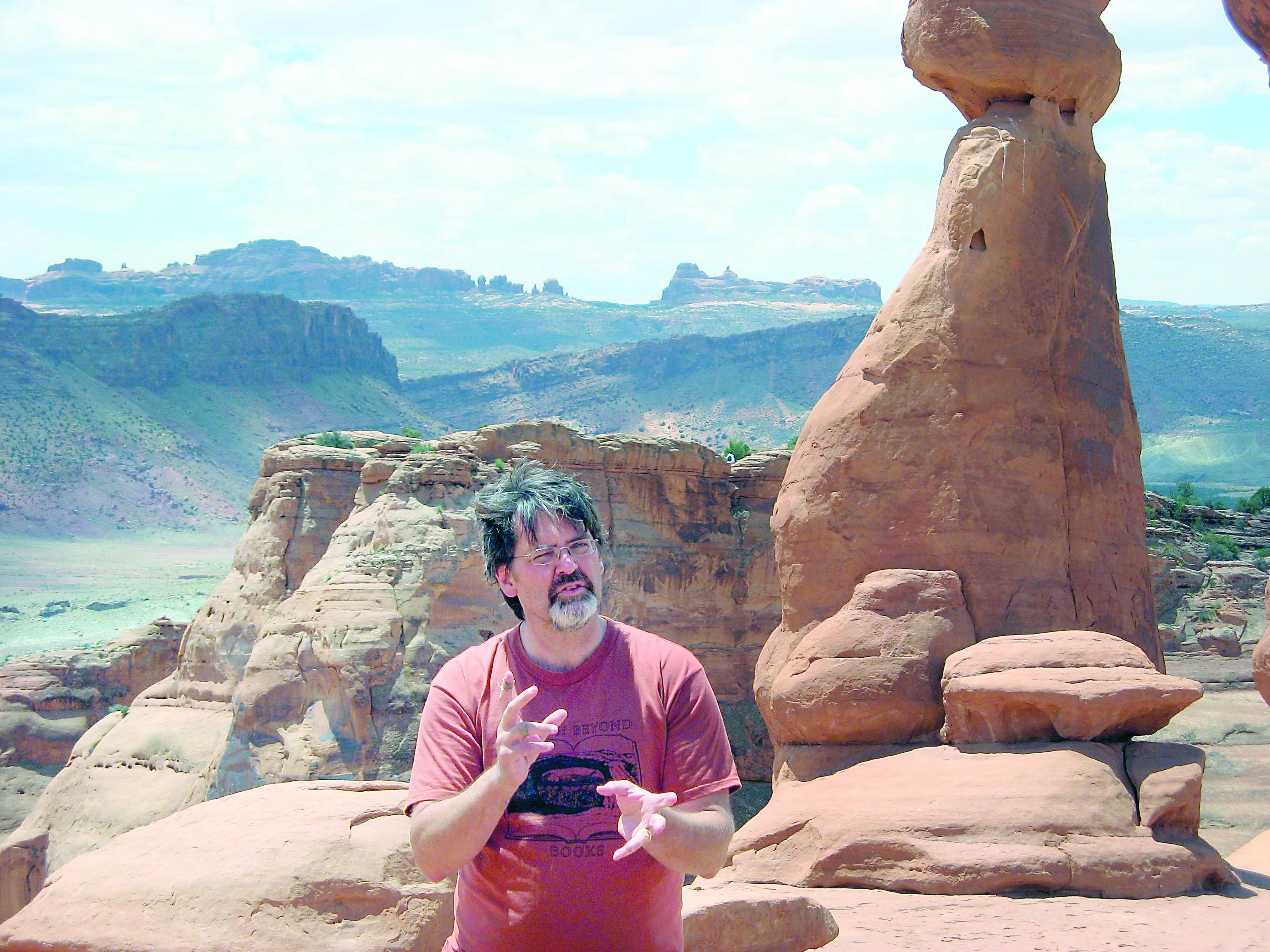PORT ANGELES — Jeff Crane is a scholar with his soul on his rain-jacket sleeve, a man entranced by the Elwha River back when he was a runaway.
In Finding the River: An Environmental History of the Elwha, Crane explores the Olympic waterway, dammed and undammed, alongside the people whose lives it courses through.
They range from the Lower Elwha Klallam tribe — who first appear in his chapter “Strong River, Strong People” — to Canadian emigrant Thomas Aldwell, builder of Elwha Dam.
Crane, a graduate of Evergreen State College who now teaches history at Texas’ Sam Houston State University, will give a reading from Finding the River in the Raymond Carver Room at the Port Angeles Library, 2210 S. Peabody St., at 7 p.m. Monday.
His visit is part of the library’s summer-long “River Story” series of programs.
Admission to all of them is free, and details are at the North Olympic Library System website, www.NOLS.org.
Crane’s nonfiction book, published in late 2011, takes the reader back to the river long before Aldwell and other developers arrived in young Port Angeles.
It’s a professorial work, but it’s also a human story, one that Crane researched out of love for this place.
And Finding the River, with its 22 back pages of references from newspapers and government reports, follows the story from the days before the dams through the long campaign to tear them down.
History of Elwha
The publisher, Oregon State University Press, calls Finding the River “a significant and timely contribution . . . [that] explores the rise of a river restoration movement . . . and the roles that free-flowing rivers could play.”
Crane himself has a long history of his own with the Elwha.
He grew up in Oak Harbor, the son of a Navy man stationed on Whidbey Island Naval Air Station.
But one day, he took off.
“When I was 16, I ran away from home . . . I went to Port Townsend, dumped my bicycle and hitchhiked,” he recalled.
Crane wound up out west of Port Angeles, where he said a couple of Native American women gave him a ride up the road.
“I don’t know which tribe they belonged to,” he admitted.
“They fed me some salmon. Then they packed me a lunch and sent me on my way.”
Crane also remembers seeing a man dip-netting in the river.
He went on to hike up the Elwha, taking the first of many long treks into the mountains.
That was 1980.
Fourteen years later, when Crane and his wife were first married, they camped at Humes Ranch, the riverside homestead that is now a popular Olympic National Park destination.
Crane has wanted to write a book about the Olympic Peninsula ever since he earned his doctorate at Washington State University.
Research
He began work on Finding the River long before removal of the Elwha and Glines Canyon dams began in 2011.
Working on the final edit last fall, he pored over the text, changing his phrases from future tense to present.
The Elwha’s tale is richer and bigger, Crane emphasized, than the dam-destruction story.
He set out to write a book for people who are discovering the North Olympic Peninsula, falling under its spell and wanting to learn and understand more.
“I felt like I didn’t do enough on the [Klallam] tribe,” however, he said, adding that there’s much more to be written about the Elwha people’s past, present and future.
The salmon, of course, are also a powerful force running through this story.
“I teach a whole thing on salmon biology” at Sam Houston State.
But it’s tough to convey to students in urban Texas what these fish mean to the Pacific Northwest.
“They just don’t get it,” Crane said with a smile. “There is no comparable species.”
Writing the book made Crane a better historian, he believes.
It also gave him a bit of empathy for Aldwell.
“At first, I really didn’t like him,” the author said. Then he learned of the man’s complexities.
Aldwell wrote in his autobiography about his love for nature. Yet “like most of his contemporaries, he favored quick, profitable development,” Crane writes in Finding the River.
“To be fair,” he adds, Aldwell “probably saw the abundance of salmon in all the rivers and streams of the region, and felt that a few rivers could be developed without seriously damaging the salmon resource.”
The final chapter in Finding the River delves into the Elwha’s future significance as climate change progresses.
The world may take a renewed interest in it, Crane said, as “one of few healthy rivers that holds on to some diversity.”
The Elwha saga is a classic one, he added, about human and environmental history interwoven.
As for the historian, he’ll make the old dam sites a destination this week.
He plans to head up the Elwha on Monday morning to spend the day on the river before his reading.
________
Features Editor Diane Urbani de la Paz can be reached at 360-452-2345, ext. 5062, or at diane.urbani@peninsuladailynews.com.

